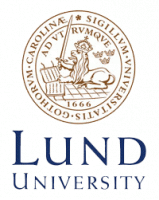LU
LU
Lund University is a world-class university that works to understand, explain and improve our world and the human condition. Founded in 1666, the University now has 41,000 students and 7,500 employees, based at campuses in Lund, Malmö and Helsingborg. Lund University has a turnover of around SEK 7 500 million (EUR 808 million), of which two thirds is in research and one third in education.
Science and research at Lund University
At Lund University’s Faculty of Science, students and researchers study and describe the physical world. They seek to understand everything from the smallest components of nature and molecular processes in the human body to the sensitivity of climate systems and the capacity of exoplanets to support life.
Lund University is in the middle of an intensive development phase. The two major facilities of MAX IV Laboratory and ESS will be of decisive importance for materials and life sciences and for industrial development. The Medicon Village in Lund will also offer a unique environment for life sciences; integrating research, innovation and enterprise creates the conditions for improved health and quality of life. Further, Lund University, City of Lund and Region Skåne have together established Science Village Scandinavia to support the development of infrastructure for the two new research facilities.
Lund University’s contribution to ESS
In BrightnESS, Lund University is involved in Work Package 4: Innovation of Key Neutronic Technologies: Detectors and Moderators, more specifically Task 4.2: The Intensity Frontier and Task 4.4: Detector Realisation. Lund University is also part of WP6: Collaboration, Communication and Dissemination.
Lund University is very active in contributing to the ESS. The Division of Nuclear Physics at Lund University and the Detector Group of ESS jointly operate a Source-Testing Facility. Located at Fysicum, this infrastructure will provide first neutrons for essentially every detector prototype envisioned for ESS.
The University is also involved in the ESS accelerator development and detector development. For instance, Lund University is one of the proposers of the LoKI instrument.
.jpg)
The faculty of Science at Lund University.


 is funded by the European Union Framework Programme for Research and Innovation Horizon 2020, under grant agreement 676548.
is funded by the European Union Framework Programme for Research and Innovation Horizon 2020, under grant agreement 676548.